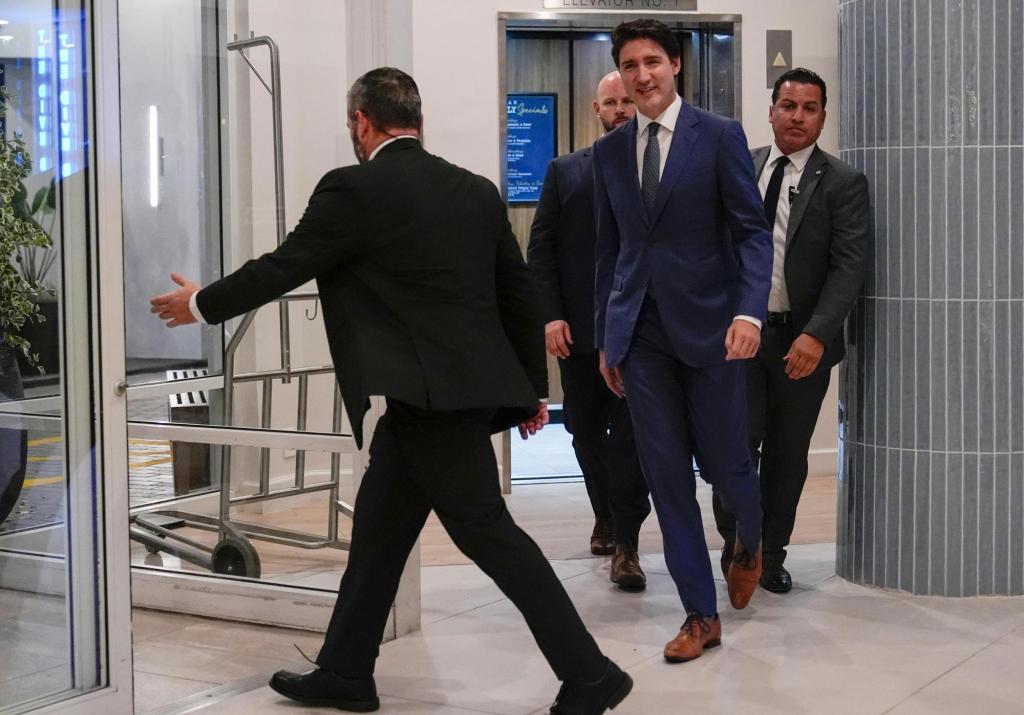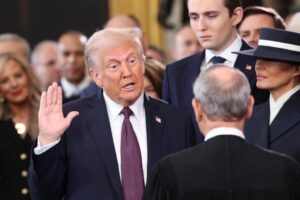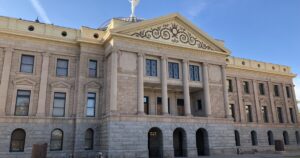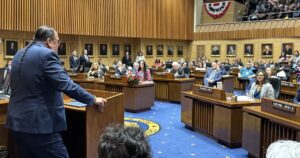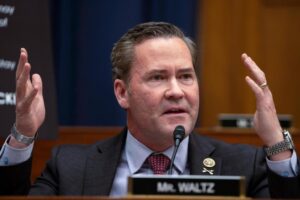In the wake of President-elect Donald Trump’s proposed tariff plans, Canadian Prime Minister Justin Trudeau has expressed concerns about the potential economic fallout for both countries. According to Canadian Public Safety Minister Dominic LeBlanc, Trudeau highlighted these concerns during a recent dinner meeting with Trump at Mar-a-Lago.
Trump has threatened to introduce a 25% tariff on all products coming from Canada and Mexico unless these nations address issues related to drug trafficking and migration into the U.S. This proposal, outlined on social media, is reportedly set to be one of his initial executive actions upon taking office.
LeBlanc, who is responsible for border security, attended the dinner with Trudeau and Trump. Trudeau aimed to differentiate the northern border from the U.S.-Mexico border, seeking to avoid the imposition of tariffs. “The prime minister of course spoke about the importance of protecting the Canadian economy and Canadian workers from tariffs, but we also discussed with our American friends the negative impact that those tariffs could have on their economy, on affordability in the United States as well,” LeBlanc stated in Parliament.
The imposition of such tariffs could significantly impact prices in the U.S., contradicting Trump’s campaign promise to alleviate inflation pressures on American families. Economists warn that businesses might pass the increased costs onto consumers, leading to higher prices for essentials like food, clothing, and automobiles.
The Produce Distributors Association has also voiced concerns, suggesting that tariffs could inflate prices for fresh fruits and vegetables, potentially harming U.S. farmers if retaliatory measures are adopted by Canada.
Canada is exploring the possibility of retaliatory tariffs if Trump’s plan proceeds. Despite a “productive” talk, Trudeau returned without any clear assurance from Trump to retract the proposed tariffs. Trump maintained his stance, which Canada deems unjust, as it aligns them with Mexico regarding drug and migrant issues.
LeBlanc, however, refuted claims that the discussions were unproductive, emphasizing the commitment from Trump to continue working with Canada. Other attendees at the dinner included Howard Lutnick, Trump’s commerce secretary nominee, North Dakota Gov. Doug Burgum, and Mike Waltz, nominated as national security adviser.
Canadian Ambassador to the U.S., Kirsten Hillman, noted that the distinction between their border and Mexico’s was acknowledged by Trump. Mexico’s President Claudia Sheinbaum responded by advocating for respect from trading partners and highlighting Canada’s own challenges with fentanyl.
U.S. customs data show stark differences between the two borders: 43 pounds of fentanyl were seized at the Canadian border last fiscal year, compared to 21,100 pounds at the Mexican border. Most fentanyl in the U.S. is produced by Mexican cartels using Asian precursor chemicals.
On immigration, the U.S. Border Patrol recorded 1.53 million encounters with migrants at the Mexico border compared to 23,721 at the Canadian border for the same period.
Canada remains a crucial trade partner for the U.S., being the top export destination for 36 states. Daily trade is valued at approximately $3.6 billion Canadian (US$2.7 billion). Canada is also a major supplier of crude oil, electricity, steel, aluminum, and critical minerals to the U.S.

